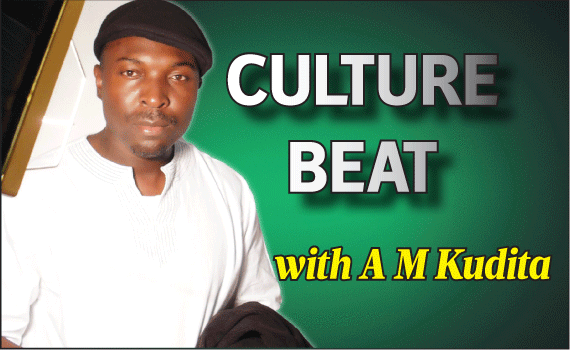
ONE cannot be oblivious to the predicament that our country finds itself in. The economy is doing badly. A month ago the Zimbabwe International Trade Fair was hosted by Bulawayo and much was tabled concerning how to “resuscitate” local industries.
I gave myself a task.
Thinking it through
I had discussions with the ZimTrade leadership as well as the South African delegation from the country’s Department of Trade and Industry who expressed keen interest in assisting local industries apart from going on radio to give my two cents’ worth.
Bulawayo has a rich natural endowment in its arts. To say this is not to exaggerate.
It is a fact. I offered that when it comes to the creative industries, this is an area of strategic competence for the city. For starters, you cannot fong kong (rubbish or fake) our arts.
The Asians cannot beat us there. The performances of the Matesu Dube-led Umkhathi Theatre Arts, for example, are not reproducible or generic in the sense that you can have some other person pretend to be the group! In other words you just can’t make a cheap imitation of that cultural “product” and pass it off as the original.
Mokoomba is a distinct music group with a distinct musical style birthed out of the unique confluence of cultures found in Victoria Falls. There can only be one Mokoomba. Thus even CNN, the world news giant have acknowledged their star power and numerous global stages cannot get enough of this effervescent group.
- Chamisa under fire over US$120K donation
- Mavhunga puts DeMbare into Chibuku quarterfinals
- Pension funds bet on Cabora Bassa oilfields
- Councils defy govt fire tender directive
Keep Reading
I can go ahead and name several others. I have noted that there is general willingness on every one’s part to do something, but exactly where to start seems to be the problem. The creative industries are a good place to look.
The breakdown There are about several sub sectors in this arena namely film and video, advertising, arts and crafts, music, fashion design, publishing (books, magazines),performing arts: theatre, dance and comedy, television and radio and interactive entertainment software (games).
According to John Howkins in the book The Creative Economy: How people make money from ideas, the global contribution of the creative industries was poised to rise from $831 billion to $1,3 trillion from the years 2000 to 2005, a compound annual growth rate of more 7%! This is the overall global picture.
What are the creative industries? The cultural industries have been defined by the United Nations Educational, Scientific and Cultural Organisation (Unesco) as industries that “combine the creation, production and commercialisation of contents which are intangible and cultural in nature; those contents are typically protected by copyright and they can take the form of a good or service”.
The UK government’s Department of Culture Media and sport describes the creative industries as “those industries which have their origin in individual creativity, skill and talent and which have a potential for wealth and job creation through the generation and exploitation of intellectual property”.
South Africa has a creative industry growth strategy document which is guiding the exponential growth of that country’s creative sector which now contributes several billion rand to the country’s economy.
What this means from the two definitions above is that Zimbabwe has potential to turn around its economy. Yes, one tree does not make a jungle, but here is a place to start which is our unique selling proposition.
Cultural policy controversy A few weeks ago I was invited to attend a cultural policy workshop.
Because it was short notice I had previous engagements and sadly could not attend. But I understand that the meeting got heated over how best to set up the cultural policy exercise.
Thirty four years down the line, we do not have a cultural policy document! This requires a certain public shame. Where are the thinkers, the intellectuals?
Rethinking the policy formulation process
If Unesco has money to give the bureaucrats to do the job, why does it not then link the local bureaucrats with others from neighbouring countries who have gone through the process of forging cultural policy documents and have them exchange notes if doesn’t ego get in the way.
I think that in some instances we do not have to reinvent the wheel and the process cannot be hogged by one person, however bright they think themselves to be.
In our case, I would recommend we consult South Africa which has a very vibrant creative industry sector.
“Devolved” thinking: Local reality To the arts community ngapha koBulawayo, let’s have our own cultural policy document that is adopted by the local city leadership.
Can the city fathers not understand, beyond partisan politics, that the city is dying and that they can use their auspices to facilitate progress simply by being able to create platforms in which resident creatives can share notes with them about what happens in other evolved cities as regards supporting cultural industries?
Bulawayo can exchange notes with Aberdeen (Scotland) or Durban (SA) about this issue. Both cities support their artists and this support cascades into synergies with the tourism sector in material ways.
The city fathers can go on a learning curve or at least allow young dynamic people to man its offices who can help catalyse growth.
I now believe that this country requires a deconstruction somewhat, a decentralisation of thought and leadership.
Local leadership needs to be more sensitised to local realities and our country needs to be rebuilt from the ground up, block by block.
Parting shot I gave you a small picture of the creative industries worldwide, the question that now obtains is, what drives this industry and how can we get a piece of the action we so badly need here in Bulawayo and Zimbabwe at large?
Next week we continue this discussion.
Feedback [email protected]










